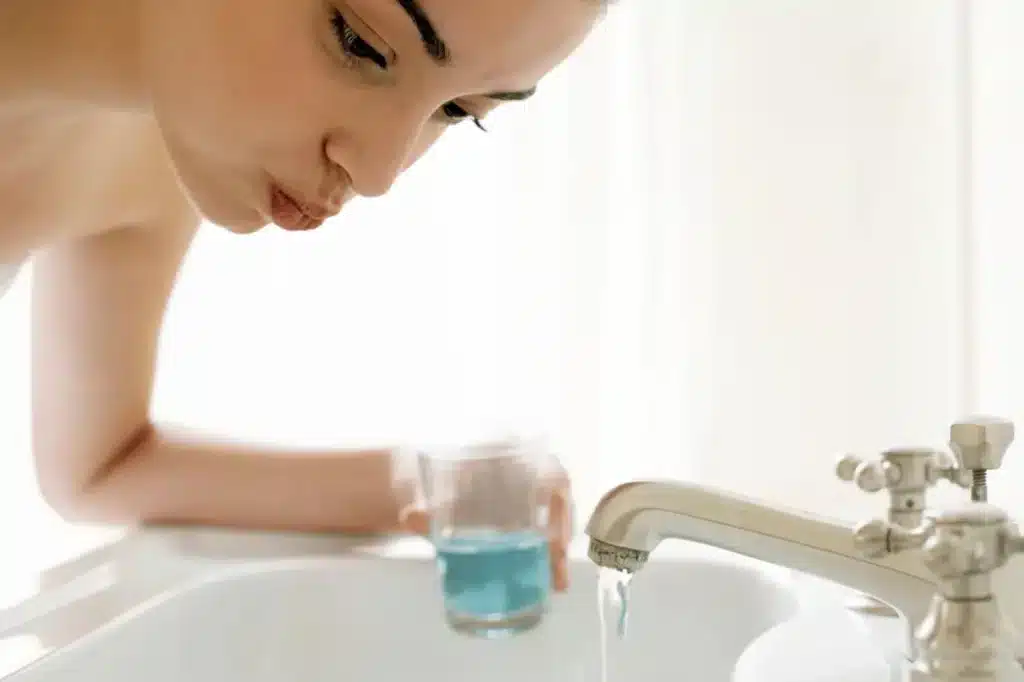Proper oral care can save you from many harmful diseases. Read to know the best dental care practices to maintain your oral health.
Dental hygiene is essential for both kids and adults. Following the proper dental care practices can prevent severe oral complications. Let’s explore some of the best dental care practices:
Brush Your Teeth Regularly
Brushing is among the best dental care practices. You should brush your teeth twice daily. Use dental floss to keep your teeth and gums healthy. When you brush, make small circles, and brush the front, back, and tops of your teeth. It should take about 2-3 minutes.
Avoid scrubbing back and forth too hard. Using a stiff-bristled toothbrush or brushing too hard can hurt your teeth and gums. You might end up with sensitive teeth, harm the protective layer on your teeth, and wear away your gums.
The American Dental Association (ADA) recommends using a toothbrush with soft bristles. You should also change your toothbrush every 3 months or when the bristles look worn out.
Use Fluoride Helps
Fluoride comes from a natural element called fluorine in the ground. Many experts believe fluoride can stop cavities, and you can find it in toothpaste and mouthwash. But not all dental stuff has fluoride, and some people don’t use it.
Research shows that you can still get cavities without fluoride, even if you take good care of your teeth by brushing and flossing. In the United States, many places add fluoride to the water to help keep teeth healthy.
Big organizations like the World Health Organization (WHO), the Centers for Disease Control and Prevention (CDC), and the ADA think water fluoridation is good. You can ask your local government to see if your water has fluoride.
Using fluoride is among dental care practices that help maintain a healthy mouth. Some water filters remove fluoride. You should check for fluoride levels if you use well water. Also, some bottled waters don’t have fluoride in them.
Floss Every Day
The dental care practices that help oral cleaning also include flossing. It helps eliminate plaque and germs hiding between your teeth, places where your toothbrush can’t reach. It also stops bad breath by getting rid of food bits that get stuck between your teeth.
Most dental experts say you should gently slide the floss down to your gum line and then move it up and down the side of your tooth. Don’t snap the floss between your teeth. It can also hurt and won’t clean your teeth.

Visit the Dentist Regularly
Visiting the dentist is one of the best dental care practices. It is vital to catch dental problems before they get bad. You should see a dentist every 6 months for a checkup. A dental helper will clean your teeth at checkup and remove the plaque and hard stuff called tartar.
The dentist will check for signs of cavities, gum problems, mouth cancer, and other mouth issues. Sometimes, they might take special pictures of your teeth with X-rays to find cavities. A study found that kids and teenagers should see the dentist every 6 months to stop cavities.
However, adults who take good care of their teeth and have no mouth problems might not need to go as often. You can talk to your dentist about how often is suitable for you. It might depend on your health history, age, and how well you care for your teeth. But seeing the dentist is a good idea if you notice changes in your mouth.
Say No to Smoking
Smoking is terrible for your body. It weakens your immune system, which makes it challenging for your body to fix itself, even in your mouth.
The CDC says smoking can put you at risk for gum problems, and the ADA warns that if you smoke, you might heal slower after a dental treatment.
Smoking can also make your mouth look bad. Your teeth and tongue turn yellow, and your breath gets stinky.
Using Mouthwash
Mouthwashes can be good dental care practices for your mouth. A study found that mouthwash with chlorhexidine, which fights bacteria, helps check plaque and gum issues. There are also mouthwashes with special oils that work well.
You can ask your dentist if you need help determining which mouthwash is right for you. But remember, mouthwash can’t replace brushing and flossing. It’s just an extra thing you can do to keep your mouth fresh.

Avoid Sugary and Starchy Stuff
Eating sugary things can cause cavities in your teeth. Studies keep showing that sugar is a big reason for dental problems. You might think of candy and sweet treats, but many processed foods have hidden sugar.
The World Health Organization (WHO) says you should try to have less than 10% of your daily calories from sugar. Some experts say dropping that to 5% would be even better for your teeth. Starchy foods, like crackers, bread, chips, and pasta, can also mess up your teeth.
Avoiding starchy foods and adopting healthy eating habits are also good dental care practices. Starchy food sticks around in your mouth and changes into simple sugars that bacteria use to make acid, which is bad for your teeth.
Instead of starchy foods, the American Dental Association (ADA) says it’s better to eat foods with fiber, like:
- Fruits
- Vegetables
- Dairy products without added sugar
Choose Water Over Sugary Drinks
Drinks with lots of sugar are the top source of added sugars in people’s diets. Sipping soda, juice, or other sugary drinks can give you more cavities. It’s better to drink water or unsweetened tea during the day. Only have sugary drinks during meals and only a little of them.
Conclusion
The blog guides you on the best dental care practices to maintain oral health. You must adopt healthy eating habits to get a healthy and beautiful smile. Visit your dentist regularly to prevent any severe diseases.
Contact Dentalsways for more tips to achieve a beautiful smile. We are here to help you.


